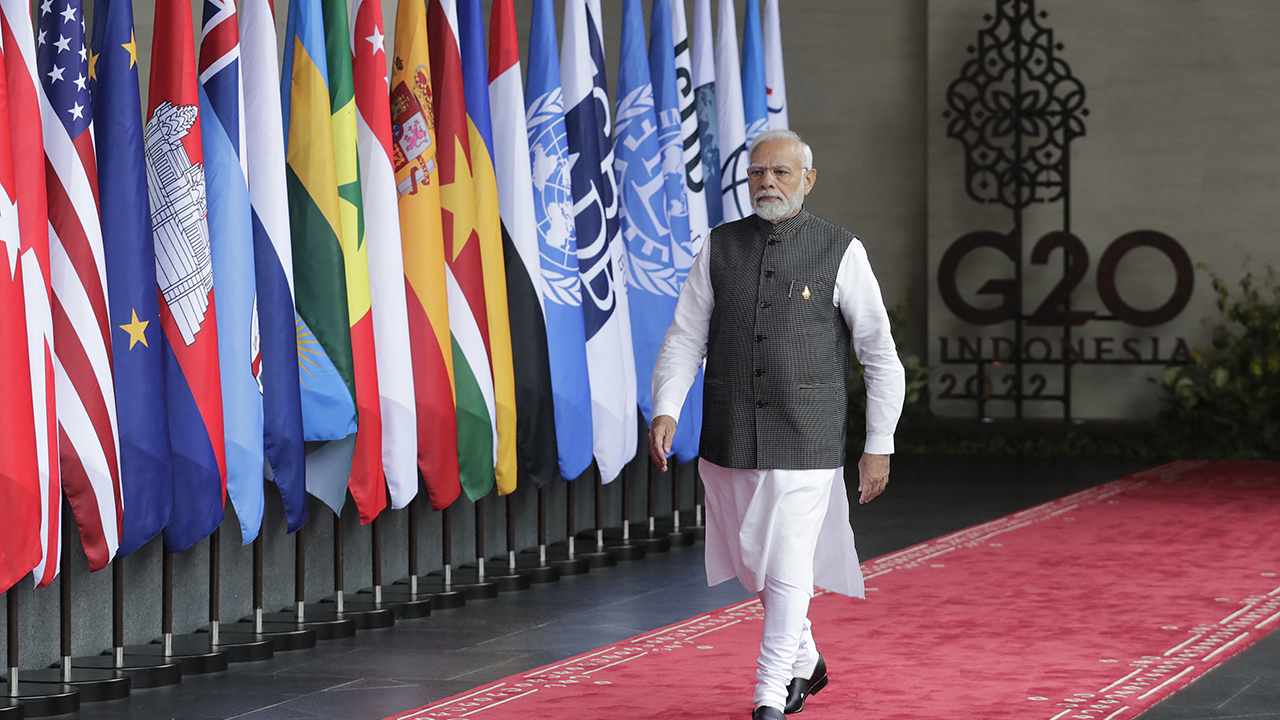
American, Israeli publics see Iran’s nuclear program as a top global threat
A new 40-nation Pew Research Center survey finds that concern over Iran’s nuclear program is greater in the United States and Israel than among other global publics.
A new 40-nation Pew Research Center survey finds that concern over Iran’s nuclear program is greater in the United States and Israel than among other global publics.
People in many countries around the world, particularly in Latin America and Africa, list climate change as a top worry. Americans, Europeans and Middle Easterners, however, most frequently cite ISIS as their top threat.
People in many countries around the world, particularly in Latin America and Africa, list climate change as a top worry. Americans, Europeans and Middle Easterners, however, most frequently cite ISIS as their top threat.
As Russia plays host this week to a critical summit of leaders of the emerging market nations of Brazil, Russia, India, China and South Africa (BRICS), Russian President Vladimir Putin is especially keen on bolstering ties with the leading economic power of the group – China.
For the first time in six years, more people in America say that the U.S. – not China – is the world’s leading economic power, according to our new survey.
Revelations in September 2013 that the U.S. government had monitored the private communications of Brazil’s President Dilma Rousseff had strained relations between the two countries.
Our most recent survey of 40 countries from around the world included a number of questions about Obama and his handling of major international issues.
While Americans favor the Trans-Pacific Partnership (TPP), they are among the least likely to support it in the nine TPP nations surveyed.
The U.S. image abroad remains mostly positive, although it has suffered somewhat from negative views of post-9/11 interrogation methods. China also is seen positively, though not on the issue of protecting individual freedoms.
Ratings for the U.S. remain mostly positive, with a global median of 69% expressing a favorable view. Countries also express broad support for America's military efforts against ISIS, but are critical of the U.S. government's use of torture after 9/11.
Across 12 countries, a median of 40% of adults say they have no confidence in Indian Prime Minister Narendra Modi to do the right thing regarding world affairs. About eight-in-ten Indians have a favorable view of Modi.
Majorities in most countries say China does not take into account the interests of other countries in its foreign policy, and China does not contribute to global peace and stability.
Across 24 countries, large shares have an unfavorable view of Russia and no confidence in Putin to do the right thing regarding world affairs.
Overwhelmingly, people believe the U.S. interferes in the affairs of other countries, but most also believe the U.S. contributes to peace and stability around the world. U.S. President Joe Biden receives mostly positive reviews.











